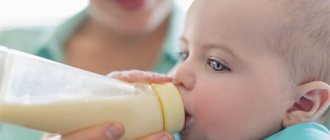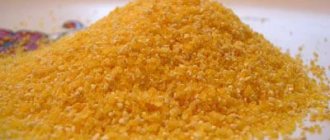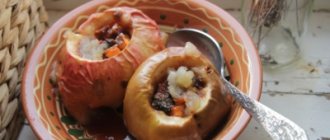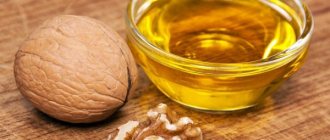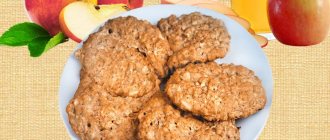As a rule, lactating women complain of a poor diet. During this period, almost all usual foods are prohibited. It’s not for nothing that mothers are interested in the question of whether candied fruits can be consumed during breastfeeding in the first month, because their benefits are widely known. Today we will talk about this delicacy and tell you how to properly introduce candied fruits into your diet and consume them without harm to your baby.
Candied fruits are less useful than dried fruits during breastfeeding.
Is it possible to have nuts and dried fruits during breastfeeding – which ones and how much?
You can eat nuts and dried fruits while breastfeeding, but you need to introduce such ingredients into your diet gradually. In this case, it is necessary to monitor the behavior of the newborn, and if unusual reactions occur, discontinue the product.
Among the useful and affordable dried fruits are:
- prunes;
- dates;
- dried apricots;
- raisin.
Some nuts during breastfeeding can cause allergies, so their consumption should be moderate. You should not eat these foods if:
- Mom previously had an allergic reaction to them;
- after childbirth, a skin rash of unknown origin appeared;
- The baby has a tendency to allergic manifestations.
Among the safest nuts are walnuts and cashews.
Dried fruits recommended for nursing mothers
There are dried fruits, the use of which is more preferable during breastfeeding, but there is no need to choose them specifically (all types of dried fruits are useful).
Dates
The most popular fruit among nursing mothers. Rich in vitamins A and B, strengthens hair, cleanses skin. Dates activate the production of serotonin, the hormone of happiness. The woman feels a surge of strength, sleep improves, and more milk comes in. The norm of consumption is 3-5 fruits per day.
Dried apricots
Contains vitamins A, B, PP, E, C. Strengthens the immune system, recommended for the prevention of colds. Reduces blood pressure (use with caution in case of hypotension). Usage rate: 6-8 pieces/day.
Raisin
Strengthens bone tissue, fights anemia, removes toxins and excess fluid. Stimulates metabolic processes and cell regeneration. For breastfeeding, black raisins with seeds and stalks are recommended (the richest composition). The product is an allergen and can cause fermentation in the intestines, so it must be introduced into the diet with caution. The norm per day is 6-10 berries.
Prunes
Along with the beneficial properties common to all dried fruits, it acts as a diuretic and mild laxative. Prunes fight pathogenic bacteria, strengthen the heart muscle, and normalize blood flow. Weak allergen. The norm per day is 6-8 pieces.
Candied pineapple
Contains the substance bromelain. The product acts as an antithrombotic, anti-inflammatory, healing agent. Strengthens the immune system, blood vessels, restores the nervous system. Nutritionists include pineapple in weight loss menus as a low-calorie product. Candied fruit is an allergen, the norm is 10 pcs. per day.
In the diet of a nursing mother, dried fruits are necessary, first of all, to stimulate lactation, improve the composition of milk and restore the body after childbirth. A concentrate of minerals and vitamins is necessary for a weakened body, including as a source of energy. After all, a handful of dried fruits replaces a piece of cake in terms of energy value and a kilogram of fresh berries in terms of nutrients.
Nuts during breastfeeding in the first month
You can eat a little bit of nuts during the first month of breastfeeding. They must be introduced into the diet in the first half of the day. This scheme is needed so that you can monitor the baby’s reaction until the evening. On the first day, you are allowed to consume no more than a quarter of a walnut. If the child does not react in any way, then after a day it is permissible to eat twice as much - half the kernel. By gradually increasing the portion, the volume of walnuts in the first month of breastfeeding is brought to 4-5 pieces per day.
The next type that can be introduced into your mother’s diet is cashew nut. According to a similar scheme, on the first day half of the nut is consumed before lunch, and at the end the portion reaches 6-8 grains. In the future, you can diversify the nut menu with varieties: macadamia, pistachio, Brazil nut, pine. A child may be allergic to nuts such as hazelnuts, almonds and peanuts.
Nuts do affect the quality characteristics of breast milk, but not its quantity. Lactation can only be enhanced by frequent breastfeeding, drinking plenty of fluids and eating well. But nuts increase the fat content of milk, fill it with important amino acids, vitamins and complex proteins.
What will prunes give to a young mother and baby?
Along with dried apricots in supermarkets you can often see prunes, also known for their intestinal-relaxing properties and a range of useful components, as well as a pleasant taste. But even here, a woman with a newborn baby may have concerns. So can a nursing mother have dried apricots and prunes, or is it better to choose one or the other?
Doctors are confident that both products will not harm. Prunes, in addition to microelements, contain vitamins A, D, E, they lift your mood no worse than chocolate, and you can forget about constipation with its consumption. But, as with dried apricots, there are peculiarities in introducing the product into the diet.
Watch the video about the benefits of prunes and dried apricots
Dried fruits during breastfeeding in the first month
Dried fruits will be an excellent alternative to sweets during breastfeeding. They should be introduced into the diet alternately, consumed in the first half of the day. It is recommended to add them to the menu in the following order:
- dates – enhance the production of oxytocin, thereby increasing the amount of milk;
- raisins – organizes proper metabolism, energizes;
- prunes – regulates intestinal function, cleanses the body;
- dried apricots – improves kidney function, relieves postpartum swelling.
Contraindications and possible harm when breastfeeding a newborn
Despite the fact that dried fruits are very beneficial for health, their consumption may be accompanied by negative reactions. Since dried apricots are an allergen, the mixture can provoke an allergic reaction. Most often these are rashes or spots. In addition, excessive consumption can cause diarrhea. If you eat 5 pieces of dried apricots, you can eat 2-3 pieces of prunes and vice versa. The total amount should not exceed 50 g.
Eating dried apricots with prunes is not recommended if you have an individual intolerance to any of the components. In addition, it is forbidden to eat them if you have diseases of the gastrointestinal tract that are accompanied by diarrhea. It is not recommended to be present in the diet of women with very low blood pressure.
Dried fruit compote – benefits for lactation and more
Compote made from dried fruits can be consumed by a nursing mother. The drink, in addition to its pleasant taste and quenching thirst, has a positive effect on the body:
- prevents constipation and bloating, improves motor skills;
- increases immunity;
- increases the amount of breast milk;
- strengthens system organs.
The process of preparing the drink is simple. It is necessary to take dried fruits (apples, dried apricots, pears, raisins or others), rinse and add water. Boil the compote for half an hour, then add sugar at the rate of: a third of a glass per 200 grams of fruit. Mix thoroughly and leave on low heat for 5 minutes.
Allergy to candied fruits in a child
The immune system and gastrointestinal tract of any infant are imperfect. For this reason, there is a fairly high risk of developing an allergic reaction. In order to protect their babies, nursing mothers must remember certain dietary restrictions. Otherwise, it is almost impossible to predict the consequences.
The main reasons for the development of allergies:
- High content of allergens that can be dangerous for both the woman and her baby;
- Active use by manufacturers of flavors, dyes and other chemical components that can lead to the development of an allergic reaction.
In any case, it is advisable to take care to reduce the potential harm to the health of the young mother and her tiny baby. Moreover, women who breastfeed their children should remember that it is during lactation that the foundation is laid for the baby’s strong immunity. If you do not follow a diet during breastfeeding, there are risks of unwanted health problems and increased individual sensitivity to various foods. It is advisable to give up sweets and allergenic foods for a certain time so that the baby is not unduly influenced by food and can grow up healthy.
Dried fruits and nuts during breastfeeding in subsequent months
If the child does not have an allergic reaction to the introduction of dried fruits and nuts, then they are not only possible, but also necessary in the subsequent months of breastfeeding. Despite the benefits, the amount of treats should be reasonable. You shouldn’t try to eat for two, because nothing good will come of it.
If dried fruits are consumed independently, then their quantity should not exceed 30-40 grams per day. It is better to choose well-known fruits and berries: apple, pear, prunes, dried apricots, raisins, dates. You should avoid exotic dried fruits: bananas, pineapple, papaya. Eat red varieties with caution: cherries, sweet cherries, strawberries.
Nuts in the daily diet of a nursing mother are present in a volume of no more than 40 grams - that’s about a handful. Peanuts and hazelnuts are excluded during breastfeeding, but other nuts can be mixed and matched.
If desired, you can prepare a nut-fruit mixture. To do this, the ingredients are crushed, mixed and poured with honey. You can consume this delicacy no more than 2-3 spoons per day.
The benefits of candied fruits
The beneficial properties of candied fruits are directly related to the chemical composition of the fruits from which they were made. Candied fruits contain a considerable amount of useful vitamins and microelements. In addition, their structure is rich in plant fiber, which ensures harmonious digestion. The chemical composition of candied fruits is in no way inferior to fresh vegetables and fruits. And this, a kind of exotic delicacy, contains in abundance the following useful components:
- Magnesium;
- Iron;
- Phosphorus;
- Calcium;
- Potassium;
- Vitamins A, E, C, PP, K, B.
In addition, these products contain proteins, carbohydrates and amino acids. Despite such a rich chemical composition, candied fruits made from various fruits are high in calories. A serving weighing 100 g contains up to 500 kcal. Breastfeeding women who have the problem of excess body weight should pay attention to calorie content.
The benefits of candied fruits are not as pronounced as compared to fresh fruits. Very often, medical experts recommend the use of candied fruits as part of a therapeutic or preventive diet. When talking about the benefits of this product for the body of a young mother, it is necessary to take into account the nature of the raw materials from which the candied fruits were made. Candied fruits made from fruits that have a high degree of allergic activity can cause unbearable harm to the body of a nursing mother and newborn baby. These fruits include:
- Citrus;
- Pineapples;
- Strawberry;
- Apples;
- Kiwi;
- Peaches.
The mentioned fruits contain highly allergenic chemical compounds, the entry of which into the body of a newborn child will lead to the formation of an allergic reaction.
If a nursing woman has been diagnosed with diabetes, then the use of this product is strictly contraindicated for her. In addition, this delicacy is not recommended for consumption by women who are overweight. When choosing candied fruits, pay attention to their appearance. Store-bought treats, which have an unnatural bright color and a synthetic odor, are a prohibited product for a nursing woman.
When making the product, manufacturers use a large number of artificial chemical additives, flavors, flavor enhancers and dyes. If a young mother wants to diversify her diet, then she can resort to making candied fruits herself.
Dried plum fruits
Prunes during breastfeeding will enrich the body with fiber, potassium, and iron.
- Prunes have a laxative effect, relieve constipation and normalize the functioning of the digestive tract.
- Fruits increase hemoglobin and fight anemia.
- Thanks to prunes, the heart muscle is strengthened and the functioning of blood vessels is improved.
- Prunes improve skin condition.
- This dried fruit normalizes blood pressure balance.
- Prunes strengthen vision due to vitamin A.
- It has a diuretic, choleretic and antibacterial effect.
Eating prunes in large quantities can lead to stool upset and allergies. It is not recommended to introduce the product before 3 months
You can make compote from prunes, you can use them raw as a snack or add them when stewing meat.
Prunes are a high-calorie product. This should be taken into account by a woman who has gained extra pounds during pregnancy and if the baby is prone to excess weight.
Fresh fruits should have a black color and a matte surface. Berries that are too hard or soft will not be beneficial because they were dried incorrectly or the rules for storing them were not followed.
